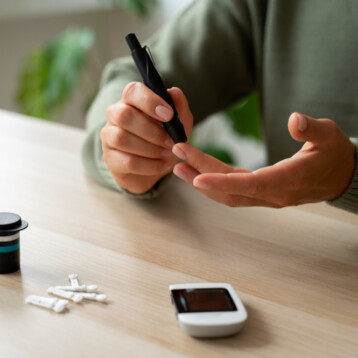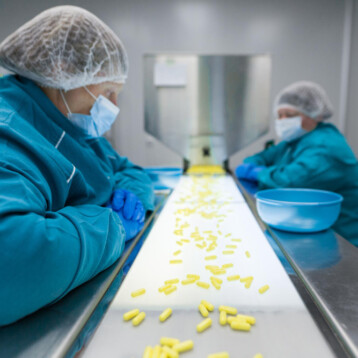The Israeli-based Company Argo Medical Technologies has developed a device that enables people with lower limb disabilities to stand, walk, and even climb stairs. The device nick named “ReWalk” is suitable for anyone with functioning hands, arms, and shoulders.
“ReWalk” is a wearable, motorized, quasi robotic suit which allows for user-initiated mobility. Equipped with leveraging advanced motion sensors and actuation motors, the device operates using robotic control algorithms and real-time software running on on-board computers. Users are able to walk by using crutches while controlling suit movement through subtle changes in center of gravity and upper-body movements. The algorithms analyze upper-body motions, which are used to trigger and maintain walk patterns and other modes of operation, such as stair-climbing and shifting from a sitting to standing position while leaving the hands free at all times for self support.
Such active participation in mobility is both a significant health and emotional benefit for wheelchair users, who are able to restore some element of control over their mobility. Specifically, the inventors say the usage of ReWalk could decrease both the risk and severity of some of the most common health issues that often face wheelchair users – such as problems with the urinary, respiratory, cardiovascular, and digestive systems, as well as osteoporosis, pressure sores, and other afflictions. “By maintaining users upright on a daily basis, and exercising even paralyzed limbs in the course of movement, ReWalk alleviates many of the health-related problems associated with long-term wheelchair use. In addition to relieving suffering, this has a real impact on healthcare costs – cutting yearly expenses almost in half and enabling both insurers and individuals to redirect funds to other avenues” – say the scientists.
ReWalk inventors say their device can serve as a robotic therapeutic or physical training tool, used for intensive functional locomotion therapy at home or in medical institutions such as rehabilitation centers. Equipped with rechargeable batteries, the device can be worn all day long and in addition to walking is also designed to allow users to sit, climb stairs, ascend or descend slopes, and even drive a car.
ReWalk users are required to have a healthy cardiovascular system and bone density in addition to being able to freely use their hands and shoulders for walking with the crutches – the inventors say the device will certainly require a physician approval.
Although ReWalk’s pricing hasn’t been set so far, the inventors say they are targeting for an annual consumer price “comparable with typical average annual expenses of people confined to wheelchairs.” According to the company, the adoption of ReWalk by both private customers and institutions will result in significant cost reductions, as it will make redundant such appliances as standing devices, stair and bed lifts, and other mobility assistance apparatuses. “ReWalk users don’t require expensive powered wheelchairs – or the oversize vehicles and devices required to handle them. With ReWalk, users require only minimal additional mobility assistance – saving tens of thousands of dollars yearly” – said the inventors.
The device is scheduled for worldwide commercial deployment in 2010, by which time the company plans to conduct several clinical trials in rehabilitation centers across Europe and the US.
TFOT has previously covered a number of innovative devices, which were invented for a variety of medical applications, including a novel
drug which imitates the effect of exercise on the body – developed at Salk institute for Biological studies in California, and unique
biosensors which can be integrated into special fabrics and measure sodium, chloride, and potassium in miniscule volumes of sweat samples on the skin.
More information on ReWalk, including a video demonstrating the device, can be found at the company’s
official website.










